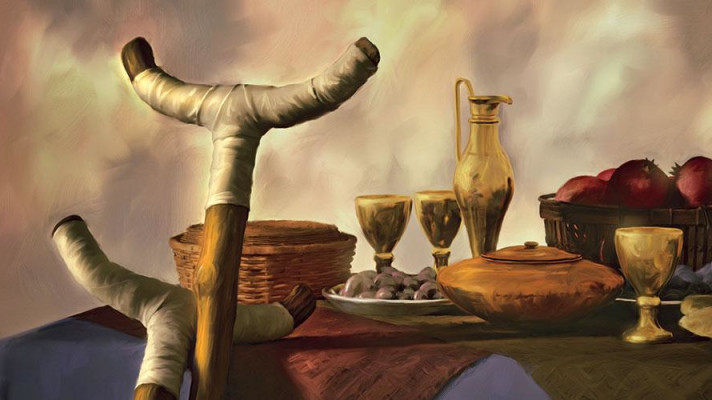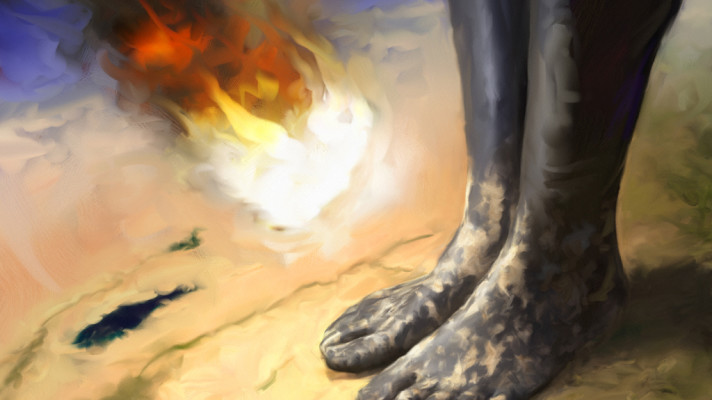“Then the king said, "Is there not still someone of the house of Saul, to whom I may show the kindness of God?" And Ziba said to the king, "There is still a son of Jonathan who is lame in his feet." 2 Samuel 9:3 (NKJV)
Mephibosheth needed a new story. He was identified with a wretched deformity, that of lame feet. He was the son of Jonathan, the grandson of King Saul. But at the tender age of five, both his father and grandfather were killed in battle. In fear his nurse hastily fled with him and “he fell and became lame” (2 Samuel 4:4). Mephibosheth lost his inheritance, his home and his family. He ended up with scarce more than crippled feet. He most likely lived in fear that David might eliminate him as an heir to the throne. Mephibosheth had a distorted picture of what David was all about.
Many years later David sought to honour his long lost friend Jonathan by showing kindness to a descendant. David’s servant Ziba said there was one alive, one who had “lame feet.” How sad someone becomes identified by a deformity! Mephibosheth lived in isolation, his feet became the symbol of his miserable lot.
Mephibosheth was brought before the king whom he nervously prostrated before, calling himself a “dead dog”. His shame and dreadful state is laid bare before David. But David showed no ill towards him, instead Mephibosheth receives an inheritance once lost. David gives him a new story. He goes from an orphan to the status of the king’s son. He goes from poverty to plenty, never to lack sustenance again.
By nature we all have been crippled by sin. Adam fell and lost the inheritance God had given him. As descendants of Adam we stand spiritually impoverished, crippled by fear; fear of a God we don’t know or understand. But God looks not to harm us but rather to bestow his kindness and mercy upon us. God invites us to live with him eternally, as sons and daughters.
Mephibosheth’s fortunes could not have been better due to David’s kindness. But still he had those lame feet to deal with. However, we read that he came to “eat continually at the king’s table” (2 Samuel 9:13). The table was a place of honour and fellowship. It gave him free access to the king’s court. It also meant that his feet would be hidden beneath that table. The king would be looking into his eyes, not at his feet or his past. The Hebrew name Mephibosheth is composed of pa’ah (to shatter or dispel) and boseth (shame). It means therefore dispelling the shame. The curse and shame was gone! Mephibosheth had a new life and a new story.
Jesus took our curse on the cross (dispelling our shame) and offers us his righteousness (2 Corinthians 5:21). By receiving him we become sons and daughters of God (John 1:12), fully pardoned, bestowed with spiritual abundance (2 Corinthians 8:9). God’s kindness is found in Christ. In him we too have a new story.




